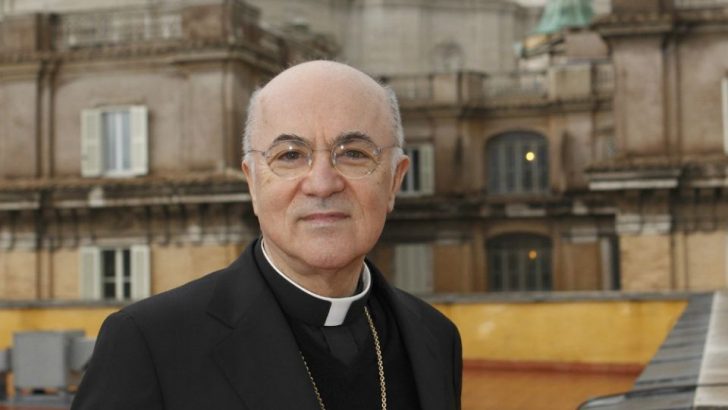Corruptio optimi pessima goes the old saying – the corruption of the best is the worst, and one of the most dispiriting things about the internal quarrels that have increasingly marked the English-speaking Catholic internet over the last few years is that commentators, publications, and websites that once were measured and thoughtful have become less and less worth one’s time.
I don’t mean sites like the likes of churchmilitant.com, of course, which has always been at best unbalanced, and which last week hit a bizarre low by tweeting from @Church_Militant that Archbishop Carlo Maria Viganò, accuser of Pope Francis, “lives in legitimate fear of his life” and has “activated the death switch, meaning if he winds up dead, a whole cache of documents incriminating Vatican cardinals, bishops & the Pope himself will be revealed”.
No, it’s reading the likes of firstthings.com, for instance, that most tends to a dispiriting experience nowadays. While not utterly devoid of interesting content, it’s no longer the harbour of thoughtful conservatism and orthodox Catholic debate that it once was.
Among the recent articles on the site, just to take a random example, Ireland’s own John Waters has written a baffling piece called ‘Francis and the journalists’ which starts by claiming that WMOF2018 all but excluded from its panels and speakers people who’d been active in recent Irish referendums.
This is, of course, nonsense; anyone who visited the RDS during WMOF2018 would have been aware of how the Pastoral Congress featured speakers as diverse as Wendy Grace, who won accolades for her television performances during the abortion referendum, and Prof. Ray Kinsella, who headed ‘Mothers and Fathers Matter’ in the marriage referendum.
John further claims he was not invited to speak or even attend WMOF2018, despite being, he says, one of three people who “fought prominently in all three referenda on the side that the Catholic Church might have been expected to lead”.
Again, nonsense. John was in a minority among prominent Catholics in thinking the Church should have led a ‘no’ campaign in the children’s rights’ referendum, his ‘First Families First’ group hardly made ripples in the marriage referendum, and his most memorable contribution to the abortion referendum was a public row with Eamon Dunphy.
The article as a whole is a deeply depressing piece, not least for its attempt to treat Brendan Smyth’s abuse as comparable with the US findings of the 2004 Jay Report. John’s written some beautiful, perceptive, and well-judged stuff in the past, but this kind of stuff can’t hold a candle to what he’s capable of – and runs a risk of misleading people elsewhere about the realities of the Irish Church.
Still, there remain plenty of oases of hope in what Pope Benedict called the “digital continent”, and one interesting and homegrown guide to these oases comes courtesy of St Joseph’s Parish in Glasthule, Dublin, which during Advent 2016 set up newpilgrimpath.ie to share with fellow Christians some of the rich spiritual resources on the Internet.
Solidarity
Noting how Pope Francis has described the internet as offering “immense possibilities for encounter and solidarity” with this being “something truly good, a gift from God”, the site maintains that there are ways to help the ancient and time-hallowed meet with the new in our modern pilgrimages.
“In bygone days, pilgrims typically stopped at holy sites along their way, to refresh themselves for the next stage of their journey. Today, our touch screens or keyboards can lead us on our path; websites can be the stopping points where we draw strength for our continued journey,” it says.
The site’s pages are devoted to a range of resources, including daily prayer, Liturgy of the Hours, online retreats, inspirational reflections, spiritual poetry, religious broadcasts and sacred music, with ‘Website of the Week’ and ‘Poem of the Week’ pages.
Every resource on the site has been visited and found valuable by the site’s small team, so we could do a lot worse than try out their tips.


 Greg Daly
Greg Daly Archbishop Carlo Maria Vigano
Archbishop Carlo Maria Vigano 